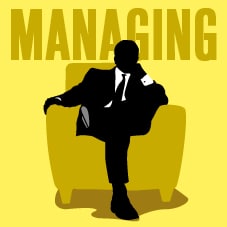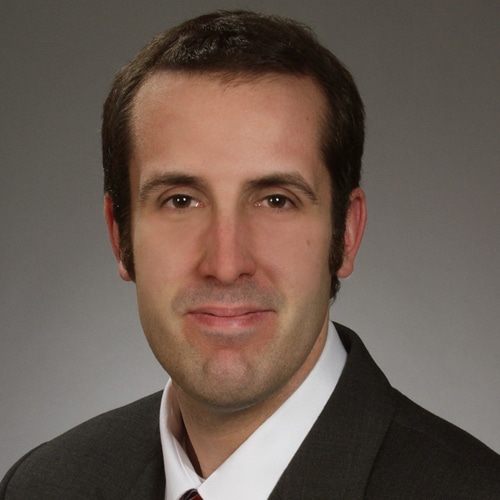The Eagles are one of the best-selling bands of all time. “Their Greatest Hits (1971-1975)” is the third best-selling album of all time. The Eagles also kind of suck. Don’t believe me? Listen to “Disco Strangler” or “James Dean.” Now, granted, some of the Eagles’ songs are downright fantastic, like “Already Gone” and “Take It Easy,” though those are the exceptions, and not the rules.
But if the Eagles suck, how did they achieve such staggering monetary success? It’s probably partly because they capitalized on the “greatest hits” phenomenon like no other band in history. Related to that is the fact that the Eagles began to be replayed in heavy rotation about the same time that radio defined classic rock, solidifying one of the more popular genres in the history of public radio.
But, were their greatest hits that much better than everybody else’s? I don’t think so.
There’s more to the story, which is revealed in detail in the documentary “History of the Eagles.” The documentary is gripping for the first two hours, but merely passable for the last hour, wherein the 1994 reunion and subsequent band efforts are chronicled. It was better before they got old, mellowed and learned some more lessons.
The Long Run
None of the Eagles’ success occurred by accident. The primary reason the Eagles made so much money is because they set out to make it, and the band was run accordingly: like a business. The Eagles were managing their band like a company well before artists considered themselves brands. Eventually, the Eagles booked their own tours, scheduled their own transportation and figured their own finances, cutting out the middle man (read: the record label) wherever they could.
This was a calculated procession. Lawyers, take note.
There are many old ways of saying that too many leaders amount to none at all. In the Eagles, Glenn Frey and Don Henley were undoubtedly in charge, as a long-form version of Roman consuls. Those two made all the pertinent calls, and ruled the band with iron fists. While Frey presents as bossman for much of the documentary, Henley can be taut and menacing. If I had to guess, I’d say that Henley don’t take no mess, and that, more often than not, Frey was running up orders from him, which would allow Henley, the quiet leader, to present as a casual sounding board for other band members, when he had been behind the decision making all along. While passive-aggressive behaviors don’t often gain traction in business, one passive and one aggressive partner can form an effective good cop/bad cop proposition.
Business has run on a hierarchical model pretty much ever since there has been business. If Frey and Henley were the leaders of the Eagles, role players would have to co-exist with them (rather than vice versa), to support the broader workings of a functioning band. But it’s not always the case that the mixture is concocted correctly the first time around — or the first four times around.
In its original incarnation (pre-breakup), the Eagles changed membership four times over six albums. That’s a lot of turnover, clearly; but, if the process generates an effective (if not wholly collaborative) work environment, then the means will have met the end. So, Bernie Leadon didn’t want to play pop rock, and Don Felder never felt he got his due, and Randy Meisner couldn’t handle the pressures of touring … enter Joe Walsh, ultimately feeling he owed his life to his bandmates for getting him into rehab, and Timothy B. Schmidt, insufferably just happy to be there. Certainly, Frey and Henley eventually found the right internal collaborators (read: those who worship at their altar), but it was a process of trial and error. Rather than stagnate and engage the status quo, they continually strove for proactive changes. It may not have made the band better, but it allowed the band to continue to exist.
Frey and Henley also knew how to work with the right external collaborators — Linda Ronstadt was nonchalant enough to let them go; Jackson Browne, living below Henley and Frey in Los Angeles, worked up the major elements of “Take It Easy.” So, the Eagles ended up as a finely tuned business machine, in part, because they figured out who to work with.
How many law firm managing partners put that sort of effort into constructing an effective team?
Money is never an easy topic to address. That’s true in business and personal relationships, but, as anyone who runs a small business learns, it feels very personal most of the time. Throughout the band’s history, the Eagles rewarded skill with recognition, including money. Frey ended up giving up most lead vocals to Henley because Henley was a better singer. Henley and Frey made more money than other bandmates on the reunion tour, because they were the drivers of the band and had maintained successful solo careers outside of it. Although Henley and Frey gave Don Felder credit for planting the seeds that became the epic “Hotel California” and the decidedly less epic “Victim of Love,” the result was almost always tied to the identity of the band. In describing Felder’s insistence on singing the lead on “Victim of Love,” Henley asserts that such a ludicrous request would be like his asking to play lead guitar on “Hotel California.”
Somebody’s gotta be John and Paul, and somebody’s gotta be Ringo. True meritocracies are harsh in that they illuminate the truth. Of course, not everybody wants to hear that, but you at least know where you stand.
From the earliest stages of the band’s surge to popularity, there was a broader strategy in play. The Eagles were a country rock band, the spiritual descendant of the Flying Burrito Brothers, of which Leadon had been a member. Leadon would have liked it just fine if it had stayed that way. Frey and Henley wanted the Eagles to move to a harder rock sound; and that was not a fight Leadon was going to win. Mega-producer Glyn Johns hit the bricks before that, as it was his opinion that the Eagles should hew closer to the country rock ethos that had informed their initial hits. Bill Szymczyk replaced Johns, and Felder and Walsh replaced Leadon. Although the Eagles never became a hard rock band, they definitely converted over to a power pop group, with heavy guitar overlays. In retrospect, the move to pop rock was inspired. It not only ended up tracking the cultural movement, but presaged the taste of the coming classic rock audience, which would keep the Eagles relevant for, like, forever.
Even if it wasn’t the best musical choice (I’m biased, though), the progression was consistent with the mission statement produced by Frey and Henley, and in keeping with the rebranding upon which they were engaged.
Over time, the Eagles’ brand became less about the musical style, and more about the lifestyle. When, at the end of the documentary, Walsh and Schmidt talk about what it means to be Eagles, it is with the eyes of cult members that they bring home that message. The commitment of group members that Henley and Frey have inspired is disturbing at worst, entrancing at best; but, leaders who can inspire that sort of unflagging devotion to an idea believe it and sell it in an uncommon manner.
Certainly, it helps to get the message across if you can turn pat phrases that become iconic. “Life in the Fast Lane”? That’s an Eagles song. “You can check out any time you like, but you can never leave.” The seminal line from the seminal song of their seminal album. “It’s a girl, my Lord, in a flatbed Ford, slowin’ down to take a look at me.” Is there a more American lyric in the pop culture lexicon? The Eagles’ musicianship may be average at best, but Frey and Henley could write the hell out of a pop song when they hit it just right.
Selling an idea in business is much like conveying a compelling message via popular music: You’ve got to convince your listening audience of the efficacy of your expression.
Take the Devil
The saying goes, “Leave nothing to chance.” The connotation being you should pay attention to details, and cover all potential loopholes. Most lawyers take that advice and apply a Santa Claus corollary: Finish up, check once, check twice, to make sure that nothing is overlooked, no mistake is left uncorrected. But that’s the negative approach. A positive spin would be that you should explore all opportunities left open, view nothing as a throwaway, and spend time considering each choice before making it. Attorneys, especially, believe themselves to be so busy, so often, that they miss potential opportunities. They are always head-down, feeling overwhelmed, instead of exploring ways to alleviate the distress.
Frey and Henley used to listen to hours of tapes of Felder playing guitar parts, and that’s how “Hotel California” — perhaps the greatest pop song of all time — was birthed. The iconic opening riff of “Life in the Fast Lane” — possibly the most recognizable opening salvo in modern pop music — was overheard when Joe Walsh was warming up.
There is no such thing as an insignificant idea, or an unimportant suggestor — at least presupposing the proper cultivation.
Lawyers wishing to start practices are quite often paralyzed by fear, usually of failure. Even lawyers who have established successful practices find it difficult to summon the courage to believe in themselves, and the value proposition they offer. Banishing fear is a prerequisite for a successful businessperson, but many entrepreneurs don’t ever give themselves a sporting chance.
The first step is taking the first step: moving on. Frey and Henley left a solid gig and the promise of a self-generating band under the wing of Linda Ronstadt and her team. Instead, they decided to form their own band, because they so fully believed in what they were trying to accomplish. It turned out that Ronstadt became a supporter of the venture, which just goes to show that life is like a box of chocolates — and sometimes all you need to do to resolve an issue is address it.
Once the band became successful, Henley and Frey placed such complete faith in their direction that even Leadon’s pouring a beer over Frey’s head couldn’t stop the train rolling.
Politics, though — that was another story altogether.
Like the best entrepreneurs, Frey and Henley willed their success.
Turns out maybe the Eagles don’t suck after all. They rock. Just in a way you might never have expected.
If you’re a law firm manager who wants to fly like the Eagles, take these tips to the bank:
- Assert your convictions. It’s your law firm, and you have to believe in what you’re doing if you have any hope of convincing others of the efficacy of your mission.
- Surround yourself with the lawyers and legal professionals you will work most effectively with, who may not necessarily be the people with the most impressive resumes.
- Consider every potential opportunity. Each small interaction has the potential to lead to new referral pipelines.
- Focus on every aspect of your sales pitch. Your elevator speeches, for example, should be finely crafted, pithy and catchy like the best pop songs.
- Above all, treat your law firm like a business.

















